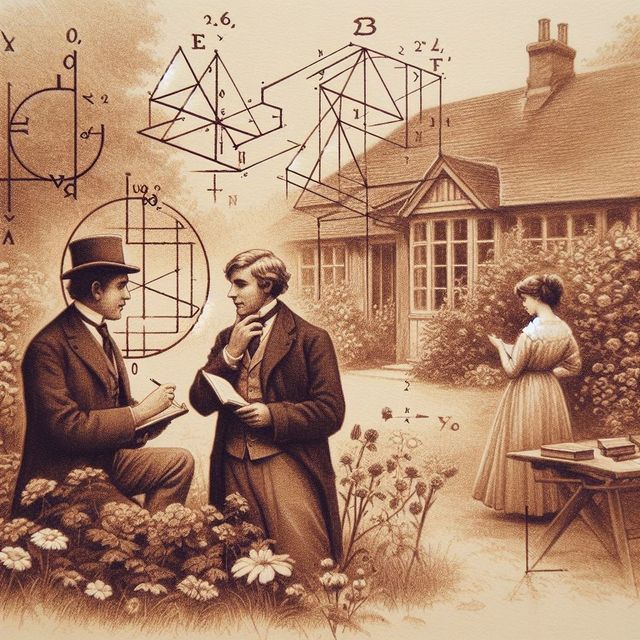-
Vijay Fafat
- Published on
An utterly trite, juvenile story which one wants to rescue only because of its long age and the fact that it was published in something as cutely named as “Tipyn O’bob” (a magazine run by students of Bryn Mawr college).
Oliver Chadwick “was a lonely fellow, an Englishman, of the Cambridge Mathematical Tripos, Associate of Mathematics in Columbia; with no near relations as far as we could ascertain.” who ardently believed that his “devotion to curves and abstractions” were attributable to his view (expressed to MacEnzie, the narrator, who was his good friend, and an English Literature professor) that “there are regions in Mathematics beyond the conception of a poet. Follow a hyperbola, think of infinity! Here alone is the spirit of man free of the flesh and able to wander beyond the stars.”.
For some inexplicable reason, Chadwick was in love with Eleanor Barton, daughter of another professor of Mathematics. Eleanor was “an intensely practical, utilitarian girl, who lived to make other people substantially happy.”. She was not only willfully ignorant of Mathematics, “she could never understand her father or anyone else who could live as a scholar in a suffering world.”. As she would say, “If it were history, or sociology, or something human, I could see some good in it but of what earthly use are mathematics to anyone?”
So while it was a surprise that the two got engaged, the fact that it was called off by Eleanor within 3 months did not ruffle MacEnzie, who felt sure that “Mathematics meant more to Chadwick than marriage”. A week after the engagement was broken off, Chadwick disappeared from his room which was completely sealed shut, creating a locked-room mystery. Where could he have gone and how?
With rolling eyes, one must reveal the following:
“I noticed a book on the table open as if Oliver had just been reading it. It was Newcomb’s “Sidelights on Astronomy” and was opened to the chapter called “The Fairy-land of Geometry” which treats of the Fourth Dimension. A sudden thought flashed through my mind. He had gone into the Fourth Dimension!”
Obviously.
The writer does not explain it but expects the reader to know that a three-dimensional prison cannot hold prisoner someone with access to a fourth spatial dimension.
And then the absurd conclusion to the story:
“One day I got a letter in the mail. “Dear Mac,” it ran, “I am in the Fourth Dimension. I was bored with existence, and found the way. I can’t describe it to you. I shan’t write to you again, and I can never get back. At first I did not want to, but now I find she wants me and this place is no longer Heaven. I tried to talk to her but I couldn’t make her hear. It was terrible. I can’t write. She would not believe my letter. Don’t tell her or anyone else. They would not understand. But you, read the chapter in Newcomb again and perhaps you may comprehend a little. “Yours to infinity, “Oliver.” That was all. He never wrote again. Perhaps he had become adjusted to the Mathematician’s Heaven!”
In a matter of 4 pages, the story throws around stereotypes of mathematicians being socially inept and “unworldly”, women not understanding mathematics, and poets being buffoons in matters of analytic domain. An example of how NOT to write ANY kind of fiction.
